Mongolian Cowboys: 3 Weeks at Anak Ranch
Posted: November 24th, 2013 | Author: ctbideas | Filed under: ATW Updates | No Comments »It’s nice to be able have the space and time to think. I used to have a relatively long commute and while I don’t miss that commute at all, I do miss the drifting of my mind while on the train or stuck in traffic on my way to work. I used to do my best thinking then, my hands moving automatically on the steering wheel, half my mind on the intricacies of driving and the other half on weaving stories or planning projects. Travelling is different, a mix of "let’s go here and see this" mingled with "all right, what’s next?" It’s always go time. Here at Anak Ranch, there’s just time. We spent most of our days working our way through novels by H.G. Wells, Sir Arthur Conan Doyle, Ray Bradbury, Roald Dahl, and Cory Doctorow; or writing blog posts (as you can see, I’m practically caught up) or sleeping.
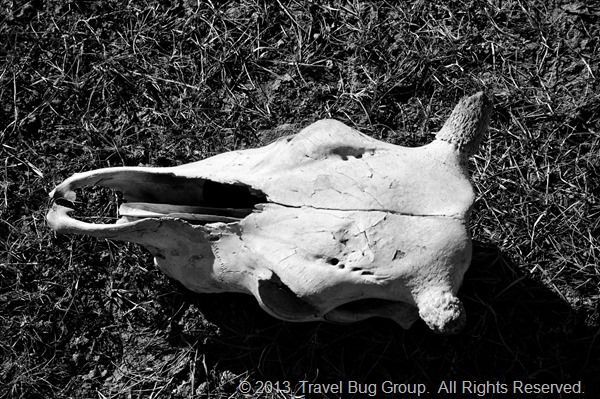
Everyday, Rick and I go for a walk. Sometimes, we have a destination. There’s a half-frozen river about 30 minutes walking distance away and Rick’s affinity to water often lead us there. Most days, though, we wander, aimless, walking and walking until we tire, then turn around and walk back. When we walk, our gazes are usually pointed down, watching for piles of cow dung tucked between the tall golden grasses covering the steppes and uneven ground that could turn our ankles. Every so often we look up and we hold our breaths at the landscape displayed before us: brown ancient mountains, snow-powdered peaks, a sea of grass dotted with stark tree silhouettes.
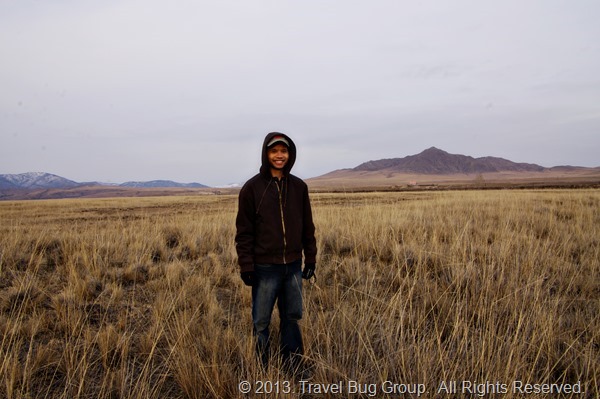
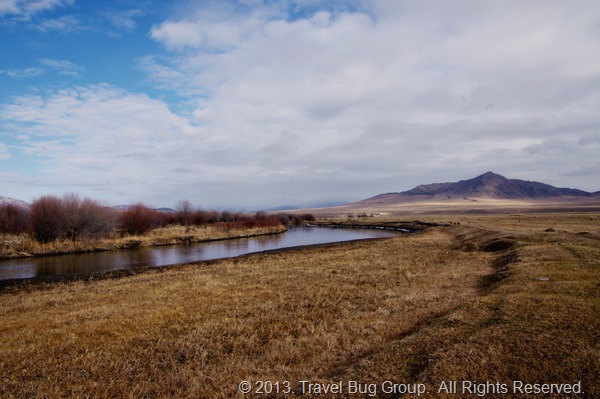
At sunset, herds of cattle are driven back to their homes. They lumber in browns and blacks and whites, glistening noses and fat bellies. The young calves, kept closer to the ranch, recognize the sound of their parents’ approach and begin to low and shift restlessly. The cows stream in through the wooden gates. Then it’s milking time, the calves drinking from one side, a person on the other side methodically squeezing the other nipples. The nipples are a thick handful, warm, squishy, slightly rough in texture. It takes a strong decisive squeeze downward for the tiniest stream of warm milk to gush into the plastic bucket. When not being milked or fed, though, the cows are wary of human approach. They don’t have names and they aren’t pets. They have numbers tagged to their ears to identify them. To the owners of the ranch, Martin & Minjee, they are meat and milk and producers of cow dung to burn in fires.
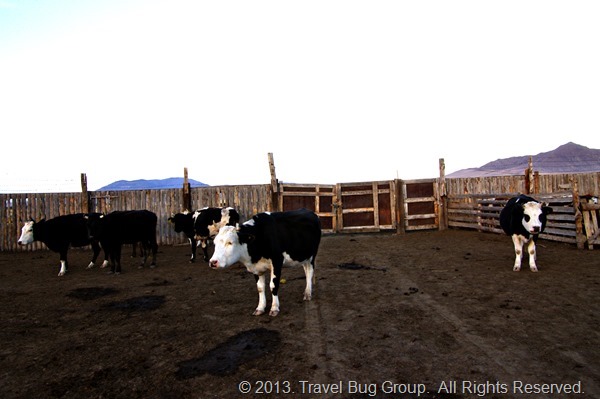
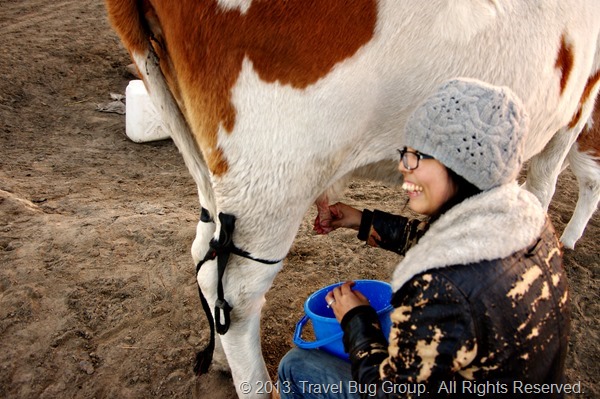
It’s the same with the horses. They are modes of transportation, but they are also meat. Minjee loves her horses. I can tell by the way she can tell them apart by the slope of their shoulders and the stance of their legs. She knows their personalities, knows which horses birthed them and which they’ve given birth to, how old they are and which mini-herd they belong to. But, at the same time, there is no sentimentality towards them. She calls them by no names. There are no tears when she singles out a few for slaughter and a few for sale. I once walked into the kitchen and commented on the large meaty bone on the counter and Minjee nonchalantly said, "Oh, it’s 2-year old horse". It ended up in our dinner that night. Branded with signs of ownership, most are allowed to stay untamed, to be horses in the most primitive natural way.
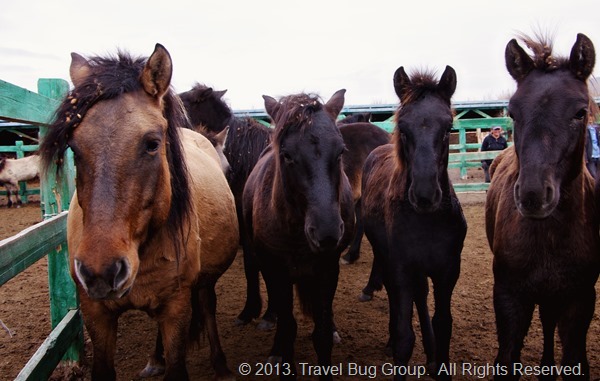
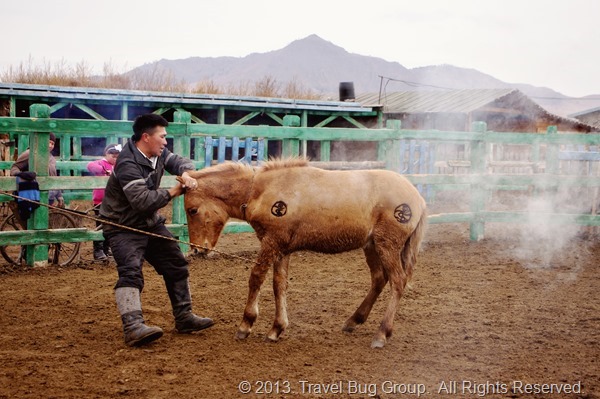
It’s amazing to ride a Mongolian horse. We were given the calmest horses on the ranch, which meant horses that didn’t move faster than a trot and were more interested in eating grass than in covering any sort of distance. But when they did get a move on, it was a very enjoyable riding experience. The horses are smaller so their backs are narrower, easier for my short legs to span its breadth without discomfort. The gait is smooth and it felt wonderful to amble through the steps, wind against our cheeks, warm furry neck beneath my knuckles, powerful muscles bunching and flexing underneath me. I could easily believe Martin when he told us he once rode for 2 days straight.
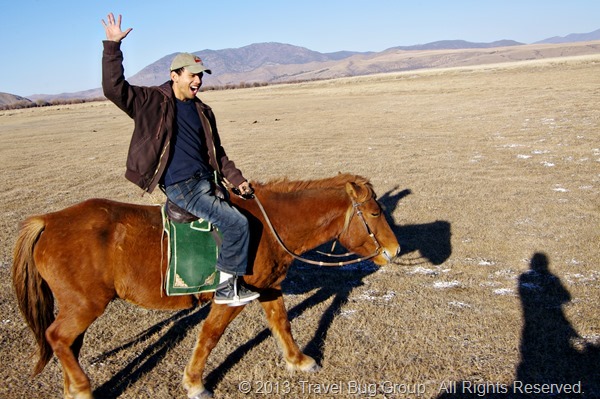
There were a few dogs and cats who are considered pets. Pat-Pat is the patriarch of the small of pack of dogs roaming the ranch. He looks calm and wise, with a big broad head and tilted Asian-looking eyes. Protective of the ranch and the people he deems their inhabitants, he spent many nights circling our ger at night on watch against encroaching wolves. Nikki, momma dog, has glossy black fur. She’s smart, knowing when to approach and when to back off for maximum loving. Sandy, Pat-Pat and Nikki’s puppy, is a mischevious energetic ball of black fur, always moving and nipping and jumping and waddling around with too-big paws. We never found out the name of the last puppy, nicknamed Scaredy-Cat by us because of his anxious wary nature. Scaredy-Cat was thin and small with big eyes and delicate demeanor. Three cats also called the ranch their home: a big white aloof male, a gray striped heavily-pregnant girl, and another colorful male who didn’t know how to quit being irritating. Despite them being pets, however, they weren’t petted and coddled to the extent we’re used to in the States. No bowls of food and water were set out at regular times and I never saw any regular petting sessions take place. We showered them with affection along with bits of bread and bone, earning their temporary loyalty during our stay.
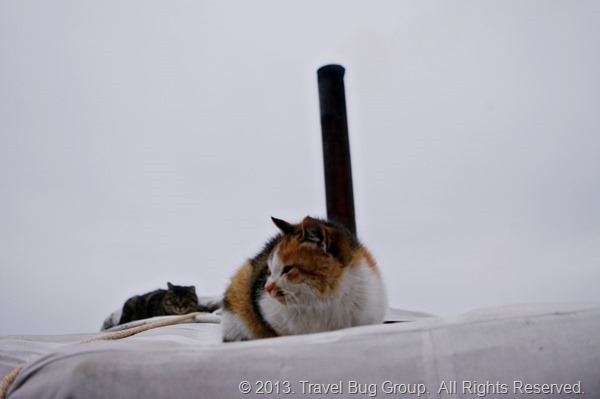
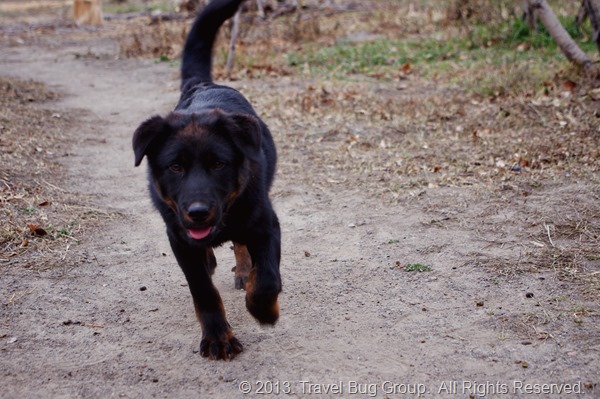
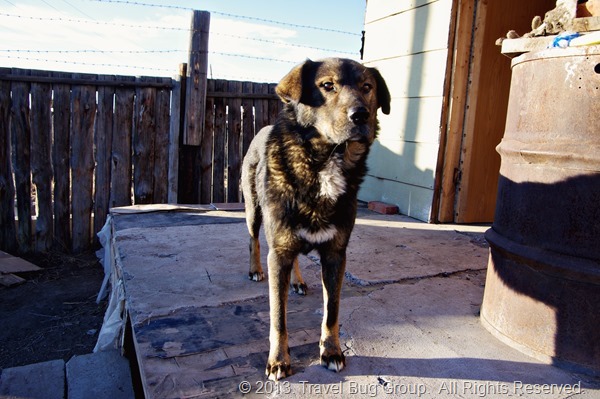
Night encroached quickly. There aren’t many lights illuminating the darkness. We needed flashlights to go to the outhouse. But, overhead, the Milky Way stretched in a white streak across the blackness. Millions of stars clustered in my peripheral vision, invisible most everywhere else, so breathtaking I could almost forget the cold. But, even indoors, I could never fully forget the cold, seeping in through all the little cracks of our ger. It’s funny how quickly my life revolved around fire especially after the sun dipped below the horizon: lighting it, building it, maintaining it, shivering without it. We learned tricks to start a fire quickly and learned how to structure a latticework of wood, cow dung, and coal for maximum burn time. No matter how elaborate the structure, though, we shivered awake in the early morning, hoping our embers had burned long enough that we could quickly build a new fire on the remnants of the old.
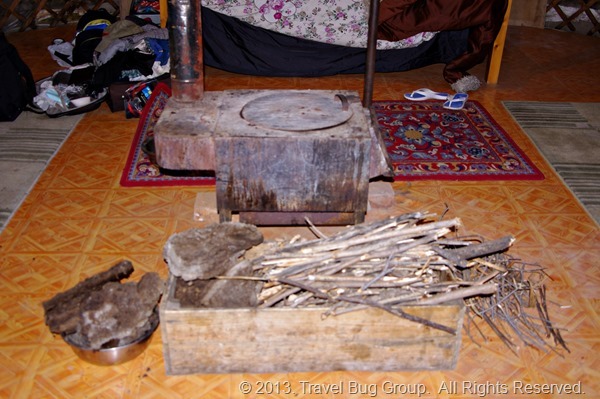
To stay in the same place for 3 weeks, we can’t help but get to know the people around us on a deeper basis just by conversing with them. We learned about Martin’s past and Minjee’s dreams of making cheese, of Norman’s yearning to be a rapper, and Alimaa’s children. On our last day, we walked to the train station (a last-minute change of plans). Alimaa hooked her arm through mine, teaching me the Mongolian words for the moon and stars, while Rick and Norman huddled together discussing manly things of interest. As we waited in the dark for the approaching train to take us back to Ulaanbaatar, I thought about how nice an electric heater would feel but also how much I would miss the people and animals and half-frozen river of Anak Ranch.
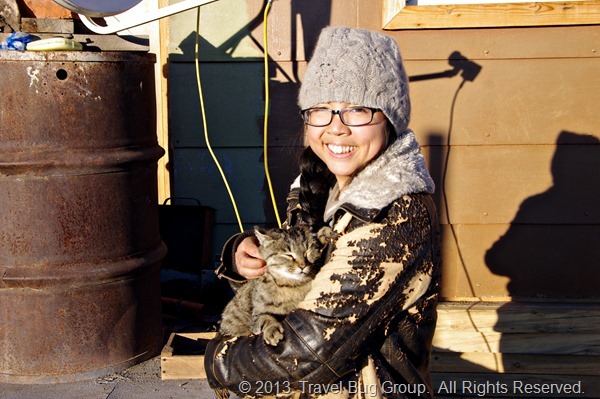
And so I end by saying to Anak Ranch and to you all: May your fire burn strong and your embers burn long.
Leave a Reply